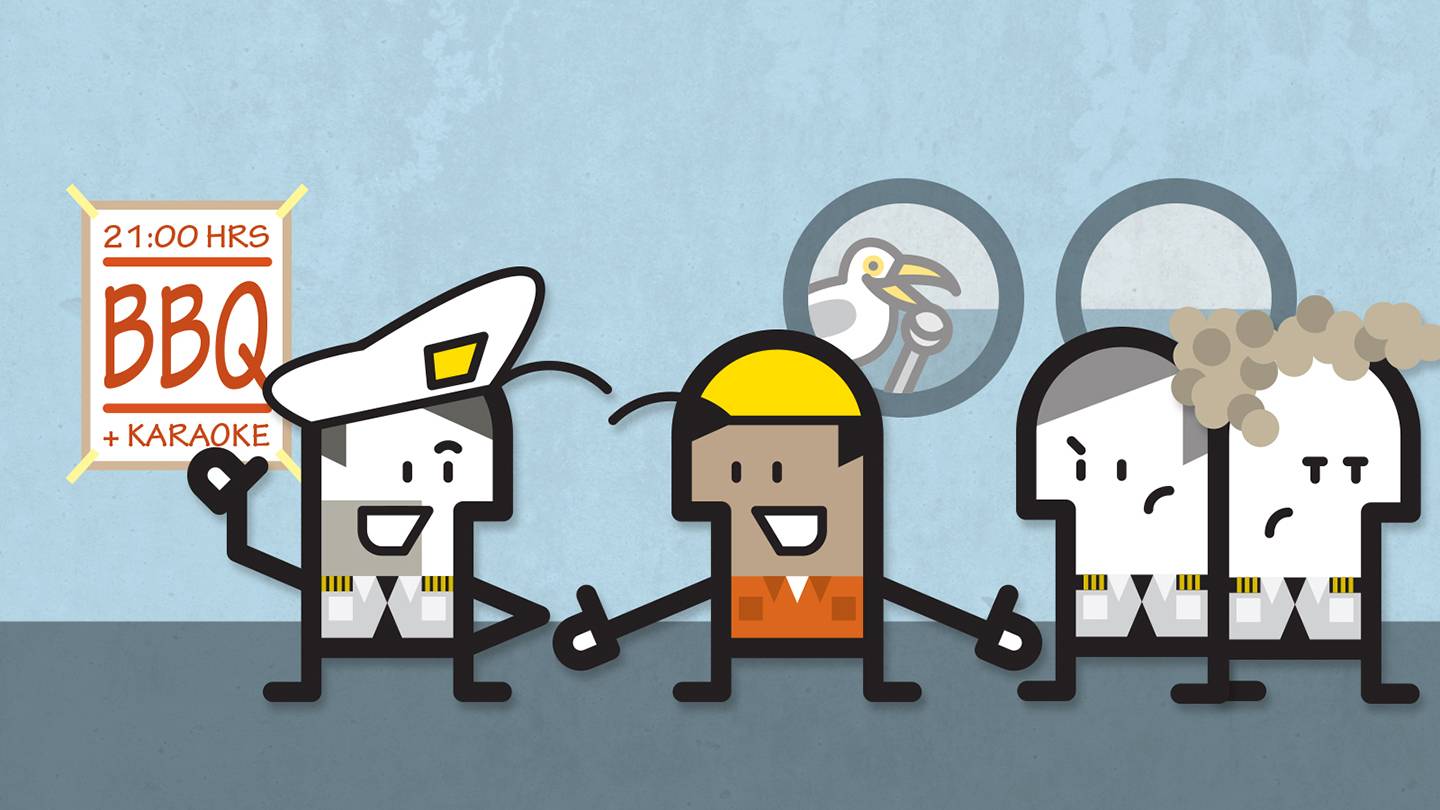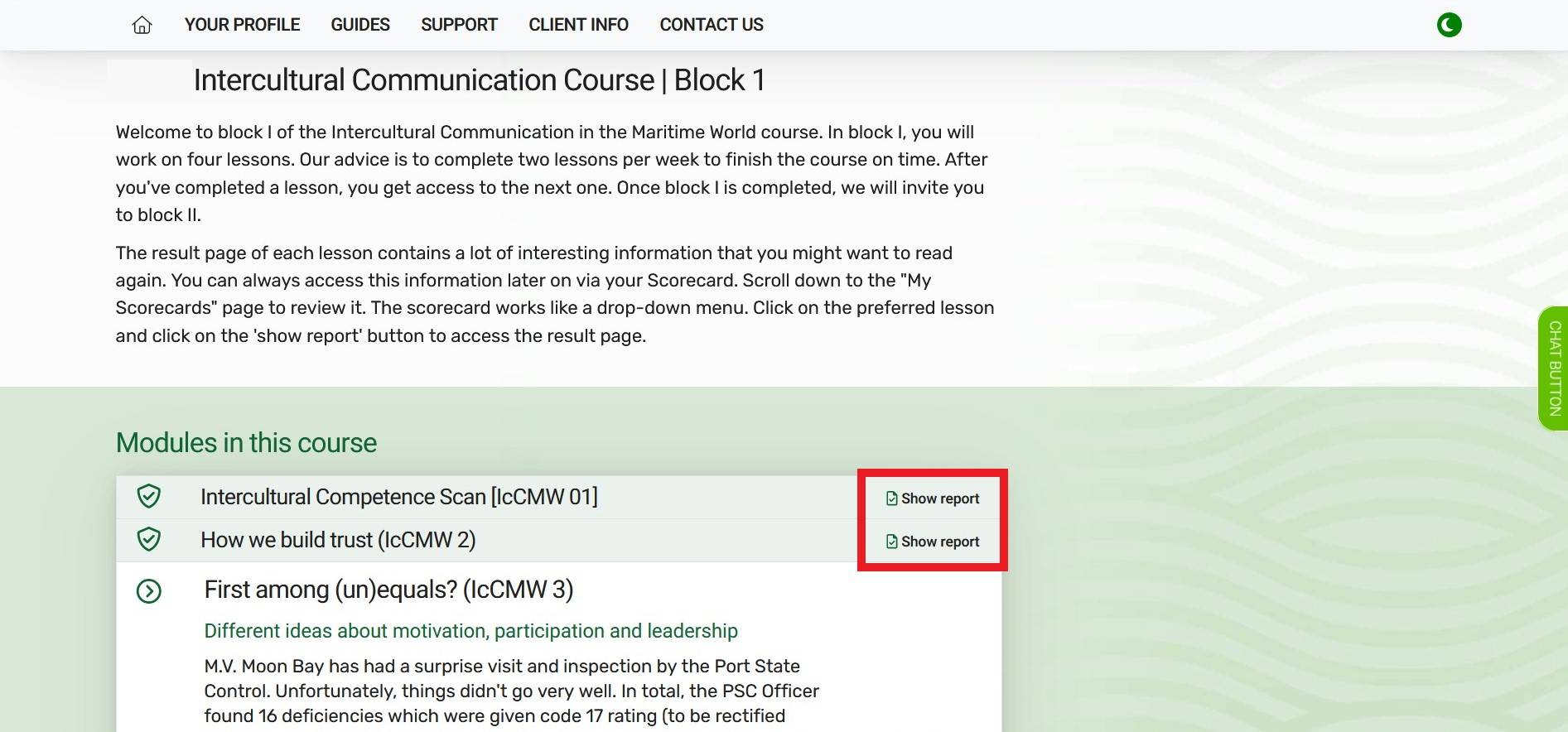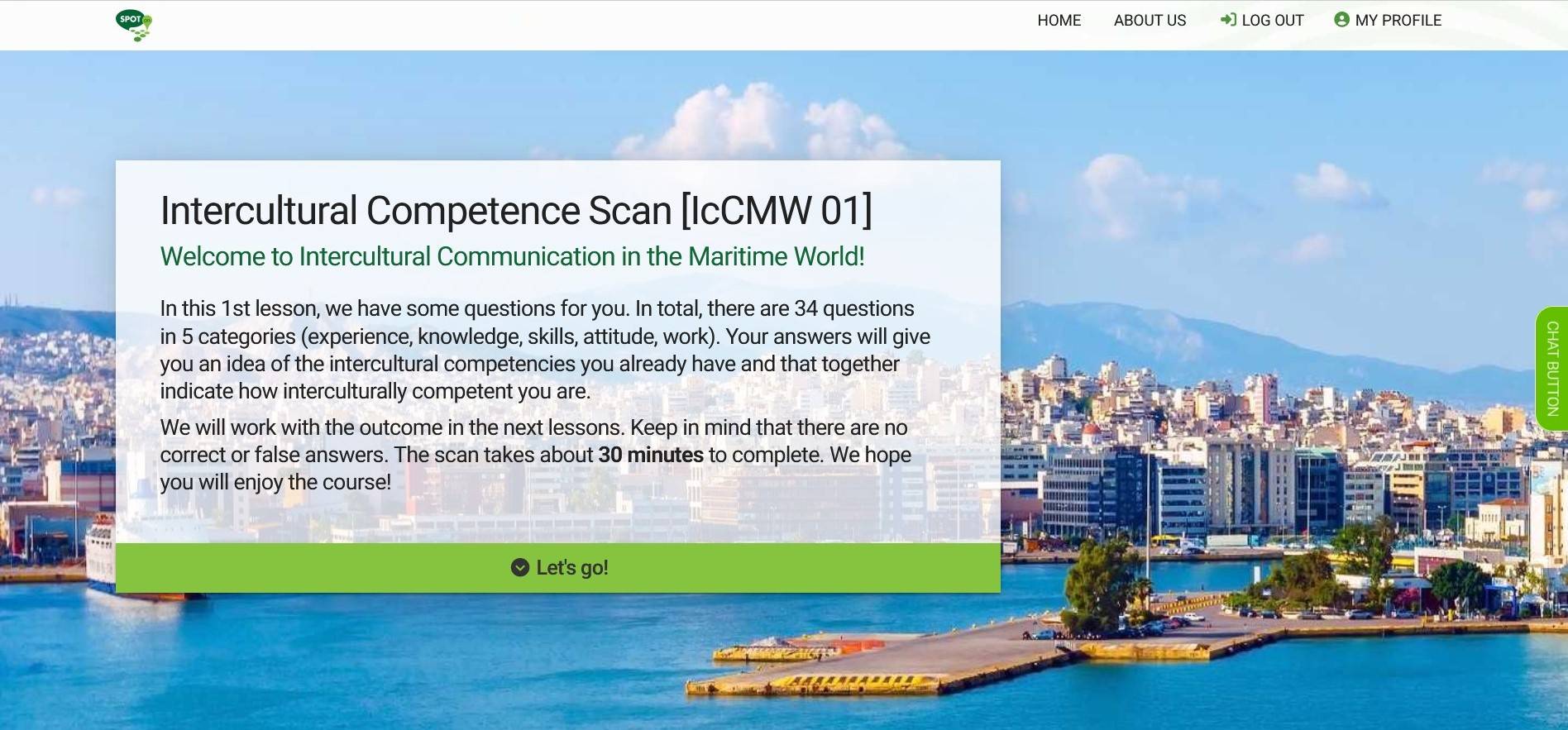How do I study in an Intercultural Communication in the Maritime World (IcCMW) course?
If you want to get the most out of your Intercultural Communication in the Maritime World course, there are a few things we can recommend. Completing no more than 2 lessons a week, allowing yourself time to read everything carefully, comparing the perspectives mentioned in the cases with your beliefs and ideas are some of them. If you follow our learning strategy, you are more likely to pass the final test.
1. Complete 2 lessons a week
The Intercultural Communication in the Maritime World course consists of 12 lessons, is divided into 3 separate blocks and is supposed to last 8 weeks. If you complete 2 lessons each week, you can prepare for and take the final test in the last 2 weeks of the course. We have seen that this results in people having a higher test score and remembering the course material better.
However, if you (for some reason) do not pass the end test the first time, there is a possibility for you to still get the certificate. In this case, you will have to go through additional course material to ensure you are more prepared for the follow-up test.

2. Take your time while going through the lessons
Although there are some illustrations and visuals, IcCMW is mostly a text-based course. Therefore, reading each case carefully may take some time; nevertheless, we advise you to take it to make sure you understand and remember everything.
Also, our experience tells us that going through a lesson usually takes people from 30 to 45 minutes. If you spread the 2 lessons across the week, this should not be too long.
Tip! You can always come back to a lesson later, even if you have finished it the first time. However, if you have, you will not be able to change your answers.

3. Try to imagine yourself as one of the characters in the course
Lessons in IcCMW are often based on real-life cases and contain several perspectives. When going through these case-based lessons, we encourage you to put yourself in the characters' shoes to see what you think. Of course, there are no right or wrong answers but you can compare your opinions, beliefs and experience to the ideas presented by the characters.
This way you can reflect on the course subjects, as well as apply them to your life and experience. Very often, you are also invited to share your perspectives an anonymized summary of which can be used later either when updating IcCMW or creating a new intercultural course.
On top of real-life maritime cases, there are also several scans in the course that can give you an impression of where you stand in your intercultural beliefs, experience and understanding. We hope that going through these scans will make it easier for you to realize and reflect on what is covered in the course, based on your responses and scientific research.

Related info...
Am I eligible for the Intercultural Communication in the Maritime World (IcCMW) course?
Whether or not you can take the Intercultural Communication in the Maritime World course depends on several things, i.e., the agreement with your organization and your rank. For each client, the agreement can be different, so the best way to know the most accurate information is to contact your coordinator.
How do I study in a Maritime English course?
If you want to get the most out of your Maritime English course, there are a few things we can recommend: using Lesson Plans, increasing your vocabulary and adhering to your weekly goals. If you follow our learning strategy, you are more likely to pass the final test.
How do I study in a General English course?
If you want to reach your required level as soon as possible, there are a few things we can recommend: adhering to your weekly goals, increasing your vocabulary and improving your speech.
Need support?
- Mail us at support@spotonlearning.nl
- Use chat/mail to contact us
- Check the FAQ's
About us
Spot On Learning helps international organisations with international crews and teams learn faster.